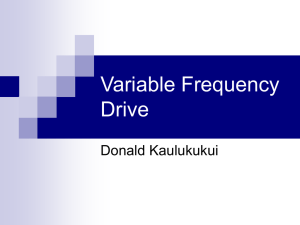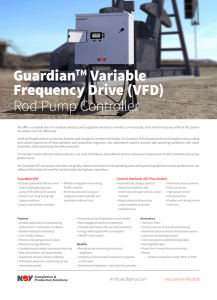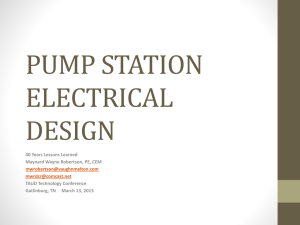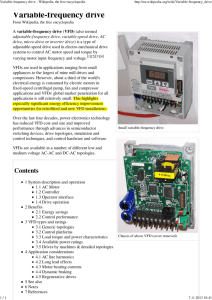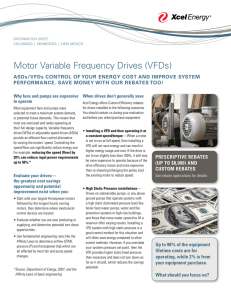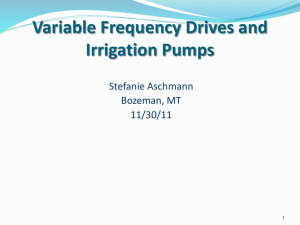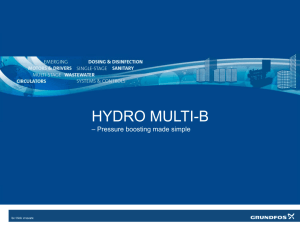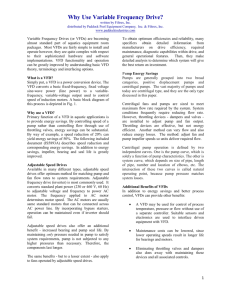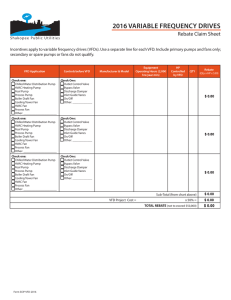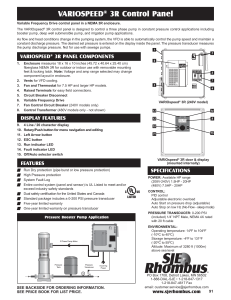Considerations for Selecting Variable Frequency Drives
advertisement
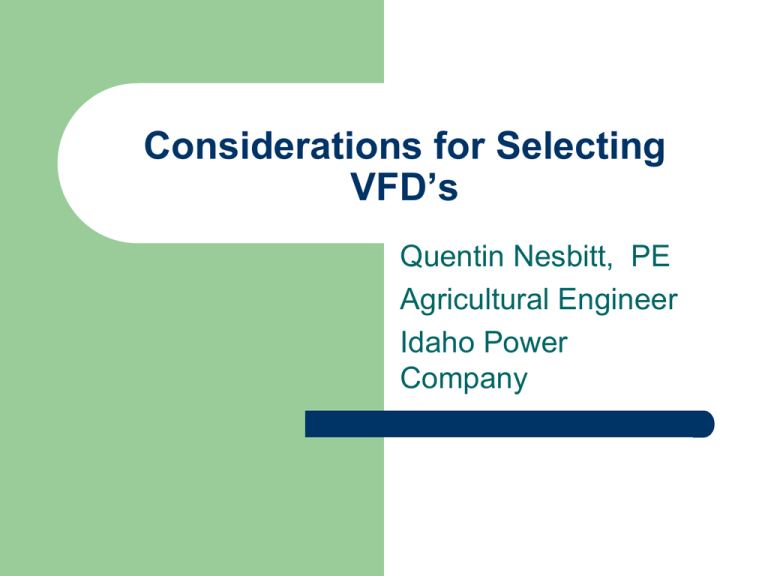
Considerations for Selecting VFD’s Quentin Nesbitt, PE Agricultural Engineer Idaho Power Company Introduction What is a VFD Applications of VFD Technical Considerations Variable Frequency Drives Other common terms – VSD - ASD - Variable Frequency Panel Solid state electronic device Normal utility 60 Hz power no longer just 60 Hz What does it look like? What I want you to Know After This Presentation Cost of Pressure (psi) Higher awareness of energy wasting practices Good applications for VFD’s Formulas HP = Flow X Head /3960 X Efficiency Cost $=BHP/Motor Eff.*.746*hrs*$/kWh Considerations Hp and pump curve shape with time at different conditions determine energy operating cost Ask specific questions on system characteristics Where is the power, is it only single phase - Line extension costs - Single phase options-Utility running current and starting current limits Consider other options – multiple pumps,valves Potentially Ideal Applications Widely varied flow Requirements Less total head needed as flow requirements are dropped (Extreme friction loss or major draw-down changes in a well) Single Well serving a very large acreage Long operating hours at less than full flow – Varied crops, multiple systems on one pump Steep pump curves Alternatives Multiple Pumps Valveing – automatic, manual, Pressure regulating Utilize more than is needed – more flow or more pressure or both Advantages /Disadvantages Ease of daily management (+) Energy savings (+) – sometimes less than expected Initial cost $ (-) High Tech device where service is harder to come by (-) Power quality considerations – Harmonics (IEEE 519 standard) – Filtering usually required & adds to cost (-) Usually the drive is 97-98% Eff.(heat loss in panel all the time) (-) Energy Savings Normally no Demand Savings – Sometime during the month probably going to run at maximum Energy Savings Calculations are not hard, but they do require the Pump Curve and some knowledge of the specific System Design head is usually constant (although multiple set points are advantageous) Pump efficiency does not stay constant Application example 450 Hp Well 490 acres 3 Pivots, 2@130 ac, 1@100 ac, 150 ac of handlines and wheelines including some corners Analysis with: 450 Hp w/VSD, 450 Hp alone, 300 Hp &125 Hp Booster w/VSD on Booster Cost estimates Cost per horsepower seems to range between $90 and $200 per Horsepower Medium voltage drives are considered to be 2300 volts - seem to be on higher end even though large horsepower Low voltage is 480 volts and lower. Single phase drives that convert to three phase maybe a option for single phase customers 200 Hp 6 pulse filter $8000, LR-$500 Check with Idaho Power and know and understand harmonic standards-(IEEE519) Cost (cont.) Hp 40 100 200 300 600 $ $4,500 $20,000 $32,000 $38,000 $52,000 Summary Check with Utility know or understand your risk get information to determine IEEE 519 requirements Owner’s that I know are very pleased There are applications where there are cheaper alternatives
